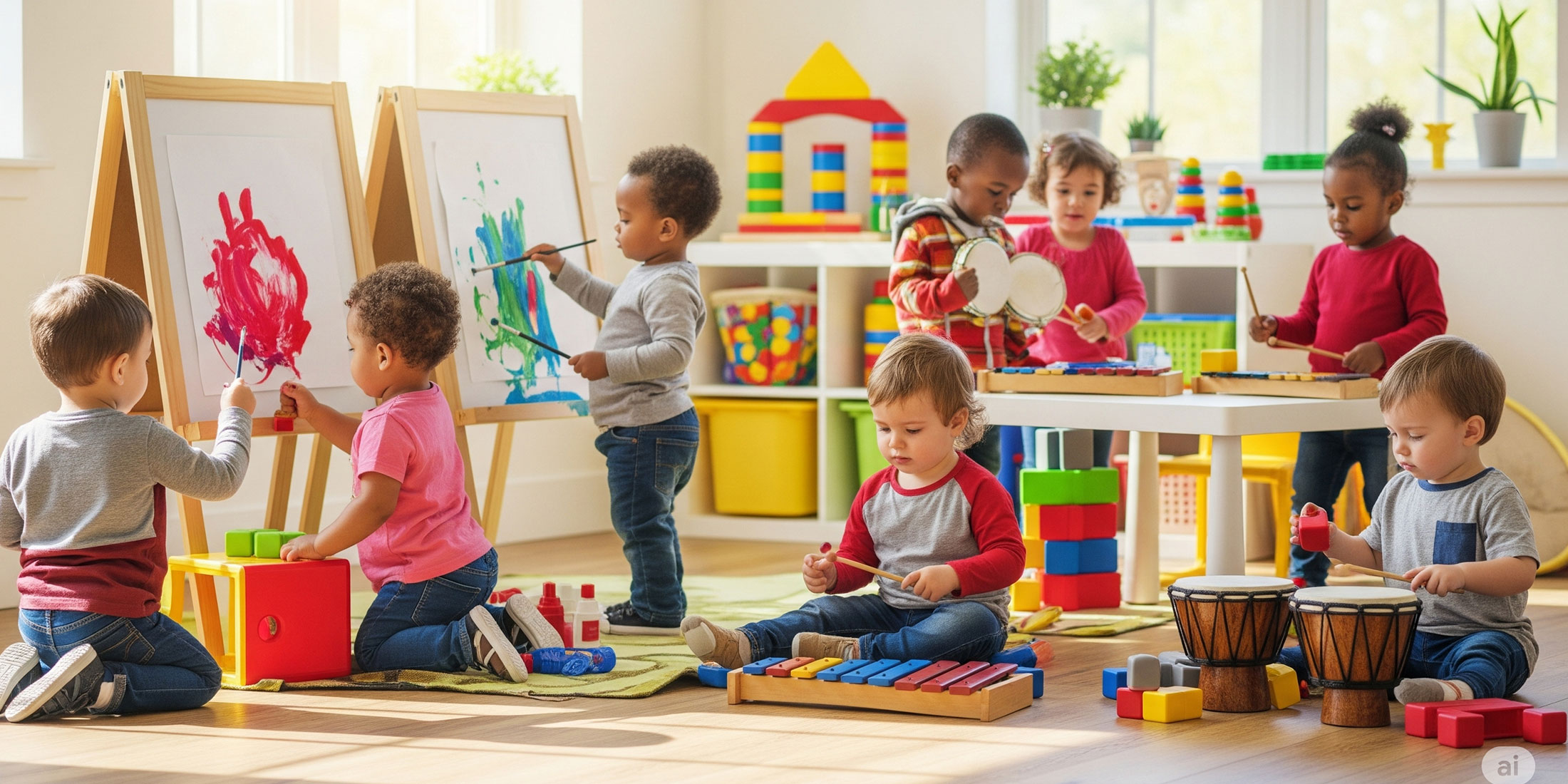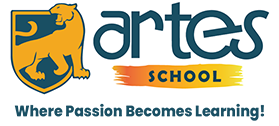
The Symphony of Growth: The Role of Music, Art, and Play in Toddler Learning
For toddlers, the world is a giant, fascinating playground, and their learning is a vibrant, multi-sensory experience. While we often think of “learning” in terms of ABCs and 123s, for children aged 1.5 to 3.5 years, the most profound and impactful education happens through the seemingly simple acts of making music, creating art, and, above all, engaging in free play. These aren’t just fun pastimes; they are fundamental pillars of holistic development, igniting cognitive, emotional, social, and physical growth.
The Rhythmic Brain Boost: Music
From humming a lullaby to banging on pots and pans, music is an intrinsic part of a toddler’s world, and its benefits for brain development are profound:
Language and Literacy: The rhythm, rhyme, and repetition in songs lay crucial groundwork for language acquisition. Toddlers learn new vocabulary, grasp sentence structure, and develop phonological awareness, which is vital for reading readiness.
Cognitive Development: Listening to music helps toddlers develop auditory discrimination, memory, and pattern recognition. Learning simple songs improves recall, while understanding tempo and pitch introduces early mathematical concepts.
Emotional Regulation: Music has a powerful effect on mood. Upbeat tunes can energize, while soothing melodies can calm, helping toddlers understand and manage their emotions.
Motor Skills: Dancing, clapping, and moving to music enhance gross motor skills, coordination, and balance. Playing simple instruments refines fine motor control and hand-eye coordination.
The Canvas of Creativity: Art
Toddlers aren’t aiming for masterpieces; they’re exploring textures, colors, and the sheer joy of creation. Art activities are not just about the end product, but the process itself:
Fine Motor Skills and Dexterity: Holding crayons, manipulating playdough, tearing paper, or squeezing paint bottles all strengthen tiny hand muscles, preparing them for writing and other complex tasks.
Sensory Exploration: The tactile experience of paint, glue, sand, or clay stimulates multiple senses, helping toddlers process information about their world.
Problem-Solving and Critical Thinking: Deciding what colors to use, how to make a mark, or how to stick two pieces together involves early problem-solving. Art encourages experimentation and understanding cause and effect.
Self-Expression and Emotional Release: Art provides a non-verbal outlet for toddlers to express feelings, ideas, and observations that they may not yet have the words for. It builds confidence and fosters a sense of accomplishment.
The Ultimate Classroom: Play
Play is the undisputed champion of toddler learning. It is how children make sense of their world, explore boundaries, and develop essential life skills.
Cognitive Development: Whether it’s stacking blocks (spatial reasoning), engaging in pretend play (imagination, abstract thinking), or figuring out a puzzle (problem-solving), play is a continuous cognitive workout.
Social and Emotional Development: Through play, toddlers learn to share, take turns, negotiate, empathize, and resolve conflicts. Pretend play allows them to explore different roles and emotions in a safe context.
Language Development: Play naturally generates conversation. Toddlers describe what they’re doing, ask questions, and engage in dialogue, expanding their vocabulary and communication skills.
Physical Development: Running, jumping, climbing, and manipulating toys through play significantly improve gross and fine motor skills, coordination, and balance.
Creativity and Innovation: Unstructured, open-ended play is the breeding ground for creativity. Toddlers invent scenarios, construct new worlds, and find novel uses for objects, fostering innovative thinking.
Integrating these Pillars into Daily Life:
Parents and caregivers don’t need elaborate setups. Simple actions can make a huge difference:
Sing and Dance: Make music a part of your daily routine – during meal prep, bath time, or car rides.
Provide Open-Ended Art Supplies: Offer crayons, washable paints, playdough, and large paper. Focus on the process, not perfection.
Encourage Unstructured Play: Provide a safe space with varied materials and allow your child to lead their play. Resist the urge to direct every moment.
Join In! Your participation validates their efforts and strengthens your bond, but also know when to step back and let them explore independently.
By recognizing and valuing the profound roles of music, art, and play, we empower toddlers to unlock their full potential, building a robust foundation for a lifetime of learning, creativity, and well-being. It’s truly a symphony of growth, orchestrated by the simplest, yet most powerful, acts of childhood.
